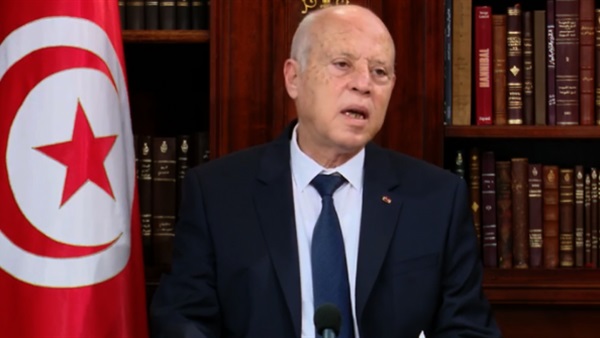‘Let the People Be Victorious’: Nucleus of a political party supporting Tunisian president

Two weeks before the legislative
elections scheduled for Tunisia on December 17, founding members of the “Let
the People Be Victorious” initiative supporting President Kais Saied announced
the readiness of 400 candidates out of the total number of 1,055 candidates for
parliamentary seats to join the initiative supporting the president.
This merger comes with the aim of
ensuring the continuation of the path initiated by the president, while Mohamed
Ali Boughdiri, one of the founders of “Let the People Be Victorious” said that
the initiative can form a parliamentary bloc that supports the president’s
decisions, explaining that the initiative includes political activists who hold
an ideology contrary to what prevails in the political arena and carries an
alternative for the Tunisian people.
Nucleus of the
president's party
Observers believe that the “Let the
People Be Victorious” initiative may be the nucleus of a new political party
that carries the ideas of President Kais Saied and defends the path he is
taking.
This is reinforced by the crisis
situation that the president alone is going through as he confronts the
Brotherhood movement, which was most affected by the July 25 path, and the
civil parties that the president sought to marginalize, blaming them for the
confusion that the country has known since 2011.
While President Saied receives
criticism from both Ennahda and the parties accusing him of dictatorship, in
addition to the severe economic crisis in Tunisia that forced it to resort to the
International Monetary Fund, the political party's choice comes logically to
support the president on the path he started.
Ennahda’s
ambitions collapse
In contrast to the support that the
new party will provide to President Saied, if the odds are correct and it
enters the scene, the new party will demolish the ambitions set by the Ennahda
movement, in which it is betting on the end of the July 25 path with the
departure of Saied from office, as his presidential term will end in 2023.
Although the new constitution allows
Saied to run for another presidential term, Ennahda is betting on his loss of
popularity in the face of the economic crisis that is putting pressure on the
majority of the people, in addition to the accusations with which the arena is filled
describing Saied as a dictator.
Conclusion of
the roadmap
In mid-December, Tunisia will
conclude the roadmap announced by President Saied a year ago, which stipulated
holding a referendum on the constitution on July 25, 2022 and legislative
elections on December 17, 2022.
The expected elections are taking
place in an unstable atmosphere, as the arena witnesses reciprocal accusations
and questioning legitimacy, at a time when the street is preoccupied with the
repercussions of the Ukrainian-Russian war on prices.
Due to this atmosphere, observers
believe that the parliament that will result in the elections will not be a
solution, but rather will increase the complications of the scene, especially
since some parties say that the procedures for preparing for the elections are
permeated with suspicions of illegality, while others believe that the next
parliament will carry Tunisia’s absent stability.







